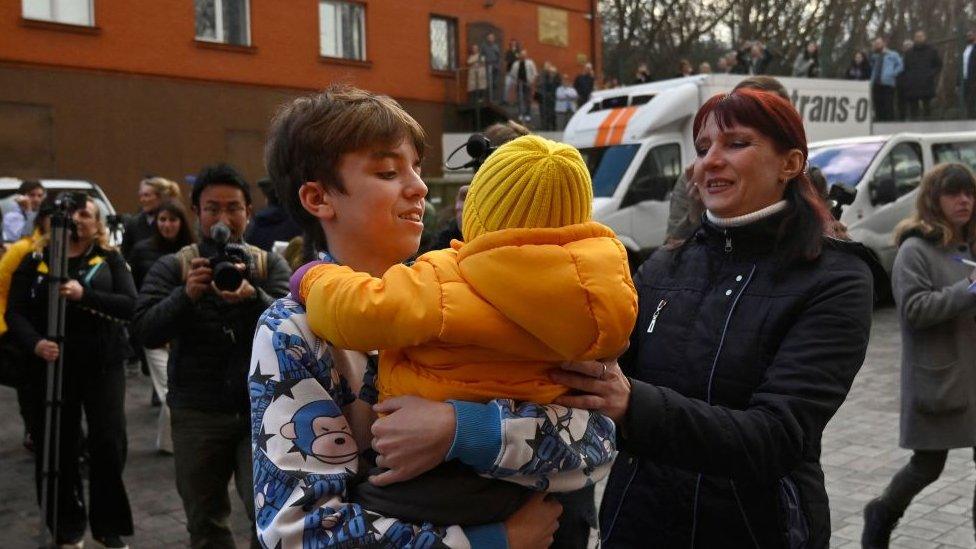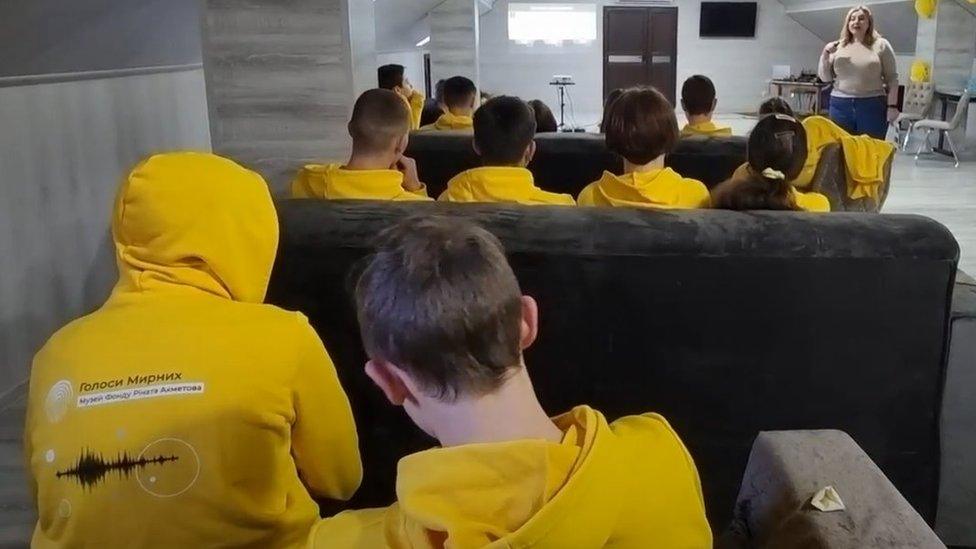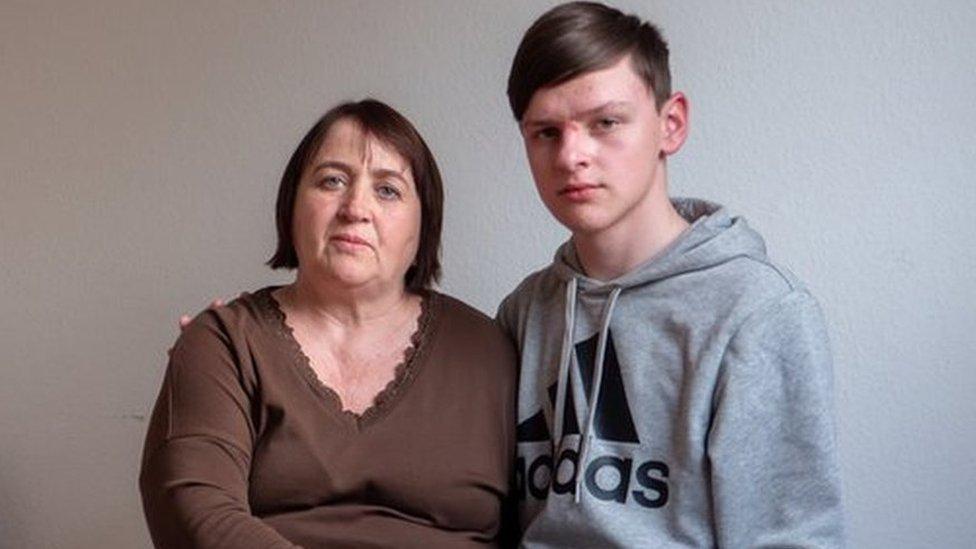Ukraine's missing children tracked down in Russia by digital sleuths
- Published

Ukraine estimates that 19,500 children have been deported or forcibly displaced to Russia
An international team of investigators say they have tracked down eight Ukrainian children, believed to have been abducted during Russia's invasion.
More than 60 detectives used digital open source techniques to trace the missing children who are understood to have appeared in Russian propaganda.
Experts from 23 countries joined forces at Europol's headquarters in The Hague.
They used advanced facial recognition to find recent images of the children online.
As investigators are unable to travel to Russia or Belarus, geolocation experts analysed photos and videos and used satellite data to determine where they were taken.
Network data analysis was then able to establish whether multiple children were in the same location.
Detectives at the EU's police agency are not revealing either the identities or the whereabouts of the eight children who've been tracked down using open source intelligence, citing potential risks to their safety.
Ukrainian police will inform the relatives and possibly open a criminal investigation. However, Ukraine's liaison for Europol said the ultimate goal was "to bring our children home to their families".
The government in Kyiv estimates that at least 19,500 Ukrainian children have been deported, external and forcibly displaced from their homes to Russia and Russian-occupied territories since the full scale invasion began in February 2022, and of those only 388 have returned home.
The exact figure is unclear, and where they are is mostly unknown. The BBC has compiled evidence from many children who said they were separated from parents, were not allowed to go home or call their relatives.
In 2023, the International Criminal Court issued an arrest warrant for the Russian President Vladimir Putin and his Children's Rights Commissioner Maria Lvova-Belova for the alleged unlawful deportation of children.
Russia denies the accusation and says it has protected vulnerable children by moving them from a war zone for their own safety.
Maria Lvova-Belova talks of "rescuing" Ukrainian children and has repeatedly argued that they are free to go home.
She says some 730,000 children have been brought to Russia, most of them with their parents or other relatives, and that 2,000 children were evacuated from Ukrainian orphanages, although she makes no mention of forcible displacement.

These children who were deported to Russia took part in a recreational camp in western Ukraine this month
Researchers from Yale University in the US mapped the deportation system and found that children were often placed in re-education camps or psychiatric hospitals.
Russian authorities have made it easier to adopt a Ukrainian child, change their name and issue them with a Russian passport.
The BBC reported last year on the gruelling journeys of Ukrainians to find their children who had been moved deep into Russia.
Humanitarian organisation Save Ukraine has managed to rescue at least 95 kidnapped Ukrainian children and will receive the international Four Freedoms Award in the Netherlands in recognition of its achievements.
This month18 Ukrainian children who were transferred to Russia and then returned home took part in a recreational camp in Irshava in the Zakarpattia region of western Ukraine, organised by a foundation set up by a Ukrainian billionaire.
Related topics
- Published31 May 2023
